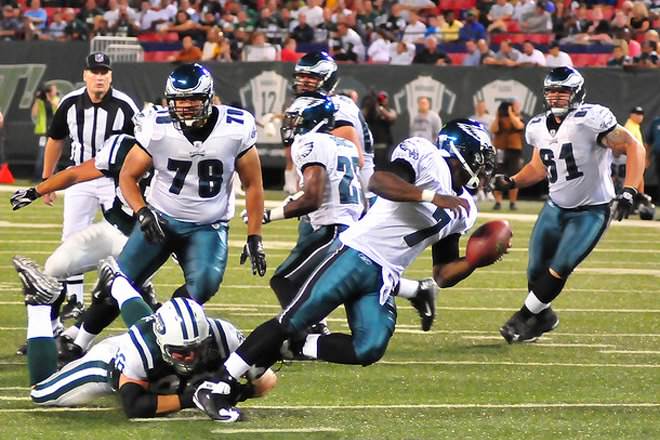
When you play rugby, you may be surprised to know that there are certain rules that must be followed. It doesn't matter if you are a veteran or just starting out in rugby, it is important to know the rules. These rules can be confusing at first. But, you can refer to a World Rugby rule book for guidance.
There are four basic positions for rugby players: forwards/backs/full backs, outside centres and outside centre. Backs are smaller, more agile and have the ability to stretch out the ball. On the other hand, forwards are larger and stronger. They also protect the ball.
An attacking team must pass the ball across the end zone of the defending side to score a touchdown. Fouls are when a defense player comes in contact with the ball carrier while the ball is still in the air. The attacking team must immediately stop playing.

The next step is to make a scrum. The players on the offensive and defense sides of the game form a scrum. Each team must have its players enter the scrum starting from their own ruck. Alternatively, an attacking team can choose to kick the ball in to regain possession.
You cannot tackle a player if he or she has the ball. Because the ball must be available for the player in front of them, you cannot tackle them. You could injure a player if you try to tackle them while the ball is still in their hands.
After a tackle, he or she must roll to the side so other players can get the ball. After this, the player must release the ball. The player who releases the ball must step back a bit to give other players a chance at catching it.
Another rule is to never attempt passing the ball forward. You must instead pass the ball laterally or sideways. This can be done by either kicking the ball or passing it to another player.

Unlike soccer, there are no downs in rugby. Instead, each team is allowed a maximum of seven substitutes. These substitutions can come from the same player or from different players. All players on the field must wear high socks and cleats.
The pitch must be long and wide enough to allow players to run and play without running into each other. The game is over after an 80-minute period. There is a ten minute break. During this time the referee has the option to call a penalty or start the game again.
One of the most important rules in rugby is to avoid tacklers. If you are being tackled, you should take a few steps back from the ball. Doing this will prevent you from being injured. Also, you must learn how to dodge and sidestep tacklers.
FAQ
Does extreme sports require expensive equipment
Yes. Extreme sports equipment is expensive. People who take part in these activities don’t need much.
Is there an extreme sport in football?
It all depends on whom you ask. It is a game that millions have played for thousands of decades all over the globe. Many people argue that football is not a sport, but entertainment. Others believe it is as good a sport as any. Some even believe it is the ultimate sport.
The truth lies somewhere in between these extremes.
Football is an extreme game. However, it requires teamwork, strategy and skill.
Who is willing to go to the extreme?
Extreme sport is open to everyone, regardless of age or ability. Extreme sport is equally appealing to children as for adults.
Younger children may play tag, dodgeball, or capture the flag. Older children may join teams to compete with others.
Adults can participate in individual sports or team sports. There are many ways to find a group to play in.
You will likely need to ask someone familiar with the process to help you start.
Statistics
- Nearly 40% of all mountain bikers have at least graduated from college. (momsteam.com)
- Overall participation has grown by more than 60% since 1998 - from 5.9 million in 1998 to 9.6 million in 2004 Artificial Wall Climbing. (momsteam.com)
- Boxing— 90% of boxers suffer brain damage over their careers, and this is not surprising in the least, considering that they are throwing punches at each other's heads. (rosenfeldinjurylawyers.com)
- Nearly 98% of all "frequent" roller hockey participants (those who play 25+ days/year) are male. (momsteam.com)
- Approximately 50% of all wakeboarders have been participating in the sport for 1-3 years. (momsteam.com)
External Links
How To
How can I learn to skateboard?
Skating is a sport where you use your feet to move on ice or snow. Skating can be done alone or with friends. It requires coordination and balance. First, learn how you can stand on the platform. You can then practice balance by moving forward and reverse. You can also try jumping off stairs or ramps. You will soon be able to ski faster and farther when you master these skills.
Here are some tips to help you get started in skating.
-
It is important to determine the type of skates that you are looking for. There are many options for skates such as inline, roller, speed, figure, and speed. Depending on your level of experience, you can choose the right kind of skates. Inline skates, roller blades, and speed skates are ideal if you just want to give them a go. Figure skaters prefer boots that offer support throughout their performances.
-
Buy proper equipment. Your preference in gear depends on whether your goal is to compete or just skate around the park. Skates that are well-made, durable, and fit well for competition are the best.
-
Try out new tricks. It is important to practice any skill. Don't wait to master a skill before you try it. Instead, try simple moves like walking backward, sliding sideways and spinning. You won't be intimidated if you try more difficult moves later.
-
Continue to learn. You won't be able to master your craft overnight. The best skaters spend many years honing their craft. They never stop improving. There are many ways to improve your technique. Take lessons at a local rink. Or, watch videos online.
-
Be patient. Don't panic if you still have trouble with a difficult maneuver. Keep practicing. You will eventually gain the confidence necessary to perform advanced stunts.
-
Have fun. Skating, which doesn't require special equipment or any training, is a great sport for beginners. It's also a lot fun!